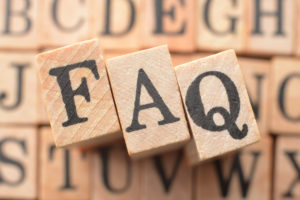 We live in a society where most of us carry at least some debt, right up through the end of our life. So what happens to this debt after death? Are you one of many Americans concerned that, rather than inheriting wealth from a loved one, you will instead inherit bills? The good news is, you probably won’t have to pay them.
We live in a society where most of us carry at least some debt, right up through the end of our life. So what happens to this debt after death? Are you one of many Americans concerned that, rather than inheriting wealth from a loved one, you will instead inherit bills? The good news is, you probably won’t have to pay them.
As you are dealing with the emotional loss, while also wrapping up your loved one’s affairs and closing the estate, the last thing you need to worry about is whether you will be on the hook for the debts your loved one left behind. Generally, heirs are not responsible for the decedent’s outstanding bills. Creditors can go after the assets within the estate in an effort to satisfy the debt, but they cannot come after you personally. Nevertheless, assets within the estate may have to be sold to cover the decedent’s debts, or to provide for the living expenses of a surviving spouse or other dependents. Certain debts and expenses will have priority over others based upon state probate laws.
Executors, personal representatives, and estate administrators have a duty to locate and inventory all of the decedent’s assets and debts, and must notify creditors and financial institutions of the death. After inventorying the assets and debts, a determination must be made on what, if any, debts will be paid, and in what order. Avoid making the mistake of automatically paying off all of your loved one’s bills right away. If you rush to pay off debts, without a clear picture of the overall financial situation, you run the risk of coming up short on cash, within the estate, to cover higher priority bills, such as medical expenses, funeral costs or legal fees required to settle the estate.
It is also important to understand the difference between secured and unsecured debts, and how debts are held.
Secured debts must be repaid or the lender can repossess the underlying asset. Common secured debts include home mortgages and vehicle loans.
Unsecured debts are not tied to any sort of collateral, and can include credit cards, bills for services, and personal loans. While heirs are generally not responsible for a decedent’s unsecured debts, there are some circumstances in which you or someone else will be personally liable for a debt, such as when an individual was a co-signer on a loan for decedent or a joint account holder.
Unsecured debts which were solely held by the decedent will not become the personal debt of heirs, and may or may not be fully satisfied through the probate process. Regardless, many aggressive collection agencies continue to pursue collection even after death, often implying that you are ultimately responsible to repay your loved one’s debts, or that you are morally obligated to do so. Both of these assertions are entirely untrue.
If you find yourself dealing with the estate of a loved one it is important to seek the guidance of an experienced estate attorney to help you through the process.


